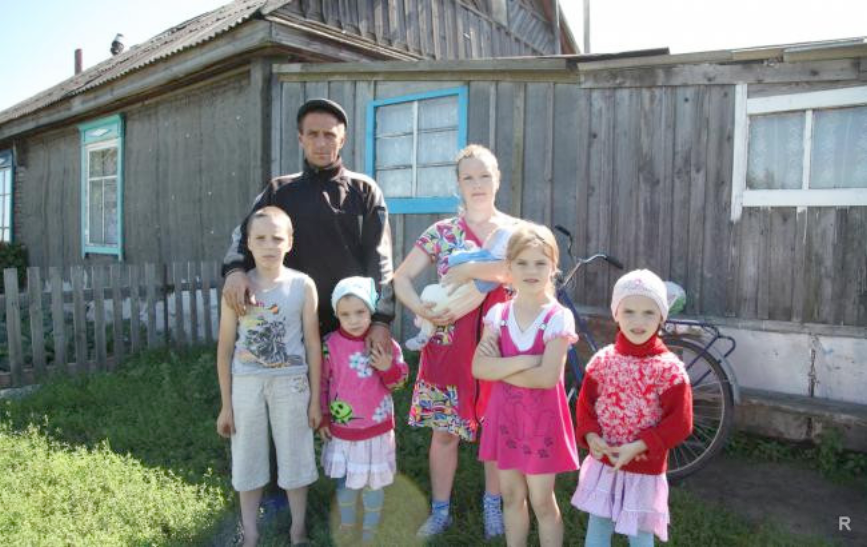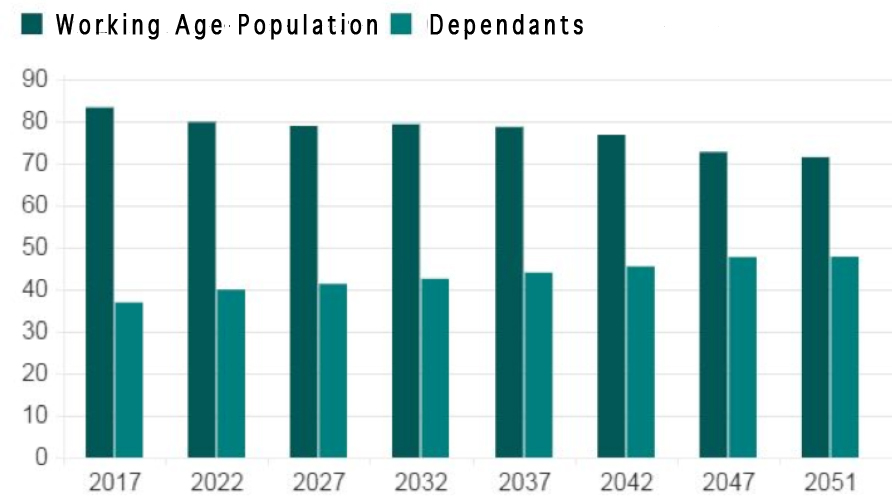
This photo of a supposedly ideal Russian family illustrates a wordyou.ru article about the introduction of the new tax “for childless” in Russia.
A new bill before the Russian Duma is now discussed throughout Russia. Under the new law, childless families (other than for medical reasons) and families with one child would have to pay a special tax to the state.
The sponsor is Yuri Krupnov, the director of the Institute of Demography, Migration and Regional Development . The document was developed jointly with the expert community.
According to the publication in wordyou.ru, Andrei Korotaev, the head of the laboratory for monitoring the risks of socio-political destabilization of the Higher School of Economics, believes that the “childless tax” would not become a popular measure and that it is practically impossible to realize such an idea. He said it will only turn childless citizens against the law and will not help to raise birth rates.
The bill “On the Status of Large Families” was submitted to President Vladimir Putin for consideration.
Putin may like the bill. At the All-Russian Popular Front forum in Moscow on November 22, 2016, he said:
“In the 1990s, we had a big failure in demography, and in this regard, even with the army recruitment, there will be problems in the near future”.
Fresh statistics from Rosstat show that during the last 10 months, 1,580,000 people were born in Russia, 1,560,000 died. Both figures, as Putin said, are lower than for the corresponding period last year (1,620,000 and 1,600,000 respectively).
The most unpleasant news in the field of demography for Russia though is not in the population growth, but in its age structure. The down side is an increase in the number of citizens over working age. The number of the working age people decreases in Russia every year by about a million. Here is the chart, where these two indicators are combined. The chart shows predictions for the Russian population in millions.

A natural demographic decline is expected in Russia. The growth of the fertile women’s age group is diminishing. The number of key group of 25-29-year-old women reached its peak in 2012, but by 2017 it decreased by more than one million and will be less than it was in 2000.
Also, childlessness is increasing in Russia: if by the early 1990s less than 10% of women had no experience of maternity (in 1970-1980, no more than 7%), then soon this figure will reach 16%.
Forty-four percent of Russians think that birth of children is the main purpose of women. They condemn women who knowingly refuse parenthood. Meanwhile, thousands of Russian citizens of both sexes call themselves “childfree” or even “child haters”.
These two wards of English origin were included in Russian vocabulary.
The popular site Snob.ru published a series of interviews with such people. Here are some quotes from these interviews:
Kira, 19 years old, not married, city of Tula:
“I have no craving for motherhood. Even when I was in a kindergarten I never wanted to play being a mother. I preferred to communicate with adults. By the age of 17, I decided that I would never have children. I have other priorities in life: I wanted to be a scientist, and family values were simply not interesting to me.
“I thought about ligation of the fallopian tubes, but, alas, the law does not allow me to do an operation that would solve many problems. I am considering the possibility of doing an operation abroad, but everything depends on finance.”
Alexey, 26 years old, married, city of Chelyabinsk:
“I learned about ‘child free’ when I was 23 from a friend who said that she does not want to have children. I then thought, ‘Why?’ But when I began to study the child free movement, I realized that children give parents only headache and parenting was a stereotype imposed on society. I have a pragmatic approach to children: this is lottery. It is not known how adequate the child will be when he is grown up. Children mean a lot of expenses that cannot be returned if something happens to the child.
“Then I did a vasectomy; this is a reliable method of protection. My wife knows that she cannot have children with me. I did not tell her about the operation, just explained that I am barren and this is not treatable. It suited her. If I do not continue the race, humanity will lose nothing.”
Tatiana, 32 years old, married, Moscow:
“I was sure that by the age of 25 I’d have a baby, because it is customary. I studied, worked, entered graduate school, married at 23, we got our own apartment. There was a time when I thought I had to decide and get pregnant. Then I suddenly realized that my parents are those, who have an urge for my child, but I have no urge to motherhood.
“Closer to the age of 30, the questions began, when will I give birth. I answered my parents: ‘Maybe I do not want it at all?’ It’s a sick subject for my mother. She had a hard life: my brother was seriously ill at an early age, there was no money. I think she wants to correct with her grandchildren the mistakes she made in educating me and my brother.”
Julia, 36 years old, married, Moscow:
“I’m not a ‘child free’, I’m a ‘child hater”! Children are nasty, selfish. They want gifts: not puppies, but computers. They do not have souls, and in general they are vile. My parents are in solidarity with me. My mother did not like me from the very beginning: she was busy with her boyfriends, and I was eating potato peelings. So the ‘childhate’ is our family tradition.”
Medical sterilization is legally possible in Russia upon a written application if the applicant is over 35 years old, or has at least two children, and also if there are medical reasons.
The procedure is getting more and more popular.

